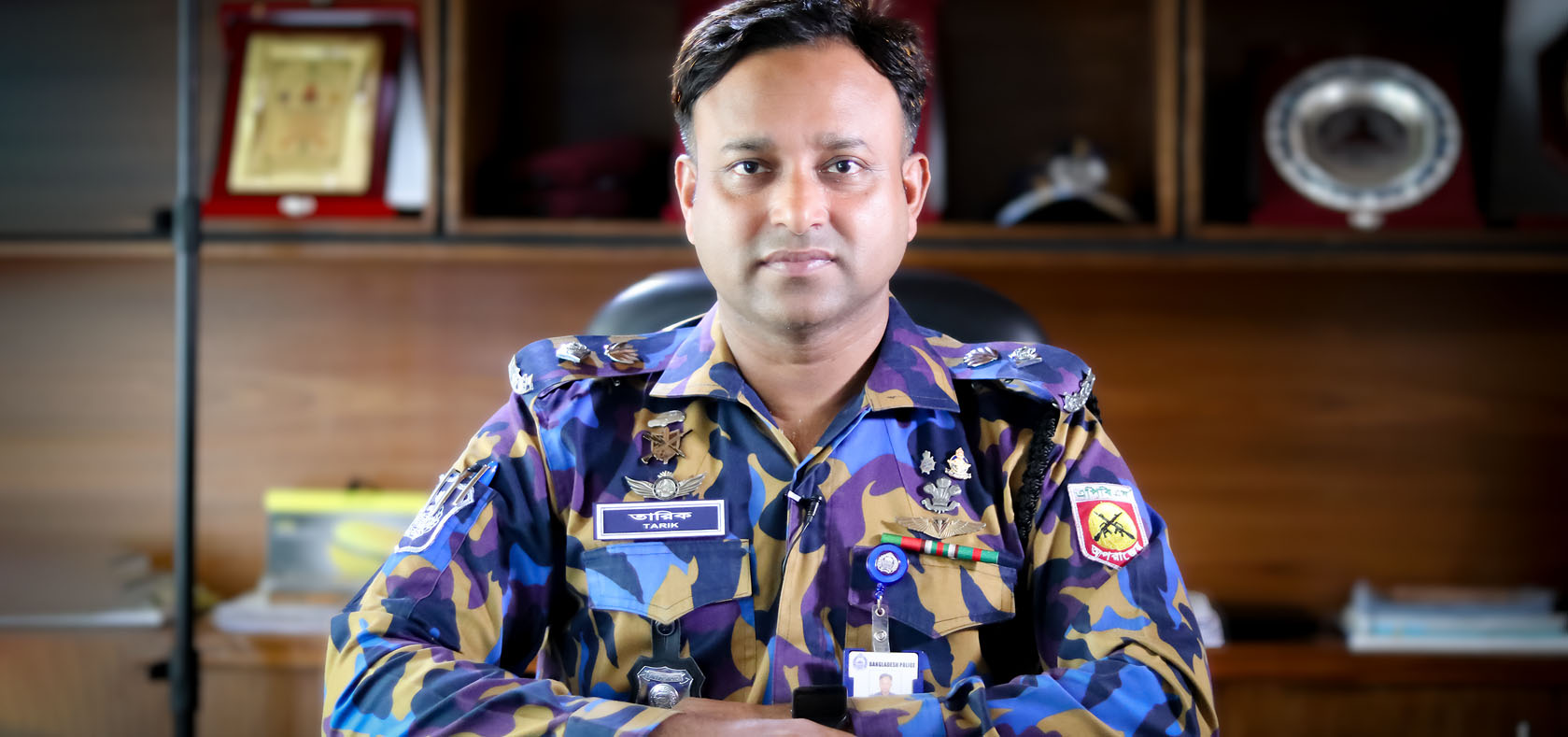In the words of Tarikul Islam: “We don’t want anyone suffering from violence to feel like there is no one besides them.”
Date:
Interviewer: Mahmudul Karim

Tarikul Islam is a Commanding Officer and Superintendent of Police at Bangladesh Police’s Armed Police Battalion in Cox’s Bazar, Bangladesh. Since 2019, UN Women has supported the Bangladesh Police to strengthen gender-responsive policing in Cox’s Bazar and improve the availability, accessibility and quality of services in alignment with the United Nations "essential services package” for women and girls subject to violence.

We have experience working with disadvantaged people in Bangladesh. But this is our first time working with the Rohingya community in the refugee camps. Many women refugees were continuing to fall victim to abuse in the camp. Domestic violence is prevalent in every block of the camp.
We wanted to prevent violence before happening, so we notified suspicious abusers and warned them. We want to serve more. We needed to be able to take on more responsibilities to reduce the violence. We wanted everyone to feel a sense of security and protection. So we contacted UN Women.
When we got a response from UN Women that they would give us training on gender-based violence, everyone was excited. More officers were interested to attend the training than it could accommodate. Following the training, selected applicants shared what they had learned with the rest of the team, and we had a discussion about it. This is how we share knowledge within the team. This has definitely enhanced our skills, and we now feel more confident to handle cases of gender-based violence.
Women often feel more comfortable opening up to other women, but they may not do so in front of other men. So we encourage women police to go and listen to Rohingya women’s experiences and the problems they face, to do so very sympathetically, and to give them legal consultation.
When we receive allegations of gender-based violence, we act quickly to protect victims and give legal assistance. We don't want anyone who is experiencing violence to feel as though they are alone.
This year, we took a vow that the Bangladesh Police are always there by people’s side. We want to be able to consult with each other. We want to understand the Rohingya community from their perspectives. We want to work like real friends to the Rohingya women, men, girls, and boys. We want to serve them and protect them. And we want to win their trust and confidence that the Bangladesh Police are always there for them.“